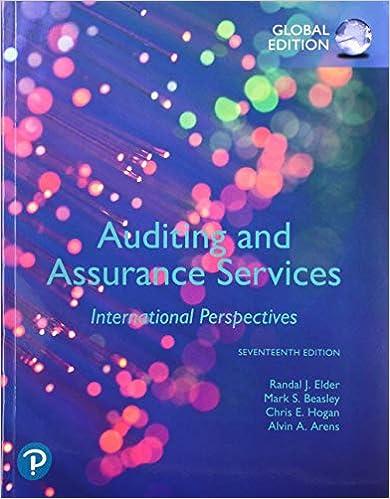Question
A study by Carol (2019) sought to determine the effect of audit committee characteristics on fraud reduction in state ministries in Kenya. Guided by a
A study by Carol (2019) sought to determine the effect of audit committee characteristics on fraud reduction in state ministries in Kenya. Guided by a positivist paradigm, a descriptive research design was employed in examining a population of 20 government ministries in Kenya. Secondary data sources were used to enhance objectiveness of the findings and the quantitative data was used to test the research hypothesis. Panel data was obtained from; Treasury, Transparency International and the ministries whereby data on the specific variables under investigation was extracted from annual reports, financial statements and records. A document analysis guide was prepared to guide the researcher in collection of data on audit committee characteristics and number of fraud incidences in all the 20 state ministries in Kenya. Data was analyzed using Stata data analysis and statistical software. Preceding the data analysis, the raw data collected was prepared for analysis. Descriptive statistics were used to profile the unit of analysis. To test the research hypothesis on the effect of audit committee characteristics on fraud reduction, the study adopted fixed effects panel data model. Post and pre estimation tests for any regression model were performed. The results indicate that number of audit committee meetings (=-0.4385; p < 0.05) had negative and significant effect on the incidences of fraud and expertise of the audit committees (=-0.4593; p < 0.05) had negative and significant effect on the incidences of fraud in the state ministries. The study also established that tenure of the audit committees had a significant positive effect on incidences of fraud in the state ministries in Kenya (=0.3601; p < 0.05). Size of the audit committee (=1.5284; p > 0.05) and independence of audit committees. ( =-0.1546; p > 0.05) did not have a significant effect on fraud incidences in the ministries. Following the findings from the study, recommendations were made.
Required
Based on the case study, answer the following questions
Explain why the researcher could have preferred a positivist paradigm
[6 MKS]
Step by Step Solution
There are 3 Steps involved in it
Step: 1

Get Instant Access to Expert-Tailored Solutions
See step-by-step solutions with expert insights and AI powered tools for academic success
Step: 2

Step: 3

Ace Your Homework with AI
Get the answers you need in no time with our AI-driven, step-by-step assistance
Get Started


